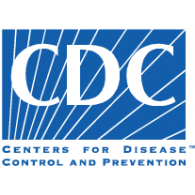0920-24DM Focus Group Guide for General Consumers about Antimicrob
[OS] CDC/ATSDR Formative Research and Tool Development
Attachment 7 - Focus Group Guide - General Consumers_2.12.24_V3
[NCZEID] Formative Communications Assessment on Antimicrobial Resistance
OMB: 0920-1154

 WS-CDC
ARX – ARX Focus Group Guide
WS-CDC
ARX – ARX Focus Group Guide
Form Approved
OMB Control No.: 0920-1154
Expiration date: 03/31/2026
Antimicrobial Resistance Communications and Media Support Services
Focus Group Guide for General Consumers about Antimicrobial Resistance
February 12, 2024 V3
Introduction; approx. 10 minutes
Welcome! Thank you for joining today’s discussion. My name is NAME. I’m an independent researcher and moderator with KRC Research.
The sole funder of today’s focus group discussion is the Centers for Disease Control and Prevention—CDC. Our conversation today will focus on a health topic.
I’m a professional researcher, but not a CDC employee or a subject matter expert on health topics. My role is to facilitate our conversation for the next 90 minutes. Let me tell you a bit about it.
There are no wrong answers. You may have different opinions. That’s OK—all of your experiences and opinions are important, and we want to hear from all of you.
Since we are having these groups online, we will need to talk one at a time and let everyone have time to speak. Not everyone has to answer each question, but it’s important that everyone participates throughout this conversation.
If at any time you can’t see the screen well or have difficulty hearing, let me know. We have a technician here who can help us.
Please silence your cell phones and put away portable devices.
If you need to step away from our discussion for any reason, you don’t have to ask for my permission—just step away and come back when you finish.
Because privacy is important, I’m going to share our Privacy Policy.
We will protect your privacy for today’s discussion, and nothing you say will be reported in association with your name. We will use first names only during the conversation. You may choose to use a nickname or any other name you prefer.
Your participation is voluntary—you do not have to answer anything you are uncomfortable with.
Like our technician who is with us today virtually but who you do not see, a few colleagues are also with me virtually today to watch quietly and take notes.
We are audio- and videorecording for transcribing of today’s discussion. Because we are speaking with many groups like this one, it is important for me to have an accurate record of today’s conversation.
We ask that you not share participants’ comments or participants’ identities with others outside of this group.
Thanks for joining today. We are having discussions with individuals in a mix of locations. Let’s go around and introduce ourselves to one another. Tell us…
Your first name, a nickname, or a name you’d like to use for today’s conversation
What state you’re located in
Something you’d recommend about your state or something you enjoy about it
Unaided Awareness; approx. 12 minutes
Today we’re going to talk about a health topic. Specifically, antimicrobial resistance. As we get into the topic, we’ll look at more information. To start, let’s think about the topic broadly. SHARE TERM ON SCREEN: antimicrobial resistance
What’s the very first thing that comes to your mind when you see this?
PROBE: What are you picturing? (Images, ideas, memories, situations)
PROBE: What are you feeling? (Uncertainty, boredom, concern, seriousness)
Have you heard of this before? Where?
Have you had experience with this? How so?
What does antimicrobial resistance mean?
How confident are you in the way you’re describing it?
What does “antimicrobial” mean?
Is there such a thing as “an antimicrobial?” What is it?
What does “resistance” mean? What has the resistance?
PROBE: Who thinks it’s when germs become resistant to something? Resistant to what?
PROBE: Who thinks it’s when the body become resistant to something? Resistant to what?
PROBE: Who thinks it’s something else?
PROBE: Who is completely unsure?
How does antimicrobial resistance happen?
PROBE: Who or what causes antimicrobial resistance? LISTEN FOR PERSONAL RESPONSIBILITY
What is an antimicrobial-resistant infection?
What does it mean for your health if you have an antimicrobial-resistant infection?
How about the terms “antibiotic resistance” and “antifungal resistance.” Have you heard of these? SHOW ON SCREEN WITH ANTIMICROBIAL RESISTANCE
How are these related to antimicrobial resistance?
Is antimicrobial resistance a problem? Why or why not?
For whom is it a problem? Why?
How serious or not serious is antimicrobial resistance? Very, somewhat, not too serious? Why?
Reactions to Definition; approx. 14 minutes
Now, I’m going to share a definition. SHARE ON SCREEN AND READ
Antimicrobial resistance occurs when germs defeat the drugs designed to kill them, called antibiotics or antifungals. It does NOT mean your body is resistant to antibiotics or antifungals.
Resistant infections can be difficult, and sometimes impossible, to treat. If antibiotics and antifungals lose their effectiveness, then we lose the ability to treat infections and control these public health threats.
Antimicrobial resistance is an urgent global public health threat, killing at least 1.27 million people worldwide and associated with nearly 5 million deaths in 2019. In the U.S., more than 2.8 million antimicrobial-resistant infections occur each year. More than 35,000 people die as a result, according to CDC.1
What’s your first reaction to this?
What stands out? Can you point to anything specific?
What are you picturing? PROBE: Images, ideas, memories, situations?
PROBE: What are you feeling?
PROBE: Where else does your mind go?
PROBE: Is there anything here that helps to make this concept seem especially concrete? What?
Is there anything new here?
PROBE: Does this match what you expected, or does it differ?
Does this answer any questions you had? How?
What personal experience have you had with this topic?
What questions do you have after seeing this?
What’s confusing or unclear?
How would you define an antimicrobial-resistant infection based on this?
What is your main takeaway from this information? Try to describe it in your own words.
Perceptions of Problem; approx. 8 minutes
Who needs to be concerned about antimicrobial resistance? Why?
How serious or not serious does antimicrobial resistance seem?
How serious is it for…
Someone with an antimicrobial-resistant infection?
Someone with other health conditions or problems?
A relatively healthy person?
The community or even the country?
Animals, including wild animals, domesticated animals, and animals used for food production?
The environment, for example in water and soil?
Do you need to be concerned about this? Why?
What’s most concerning about antimicrobial resistance? Why?
Do people have influence over antimicrobial resistance? Or is it something that just happens?
For those who said influence, who has influence and what actions are impactful?
Actions to Combat AR; approx. 16 minutes
Let’s focus on actions a person could take to protect oneself and others and reduce risk.
What can someone do to combat antimicrobial resistance?
Do you feel you have some power to make a difference on this, or not so much? Why?
Have you taken any actions specifically to protect yourself, your family, or your community from antimicrobial-resistant infections? Which ones?
What actions could you take to combat this? Let’s focus specifically on yourself, not other people.
PROBE: What can you do to protect yourself and others you care for, and reduce risk?
PROBE: What can you do you prevent infections in the first place?
Why would you take the action you shared?
How impactful are the actions you’ve shared?
Who benefits from them? How? PROBE: Self, family, community, people outside community?
Now, I’ll share some information about combatting antimicrobial resistance and how to protect yourself and others. SHARE ON SCREEN: “ACTIONS TO PROTECT YOURSELF” ONE PAGER; READ AND ALLOW TIME TO REVIEW
What’s your first reaction to this information?
PROBE: What stands out? Can you point to anything specific?
PROBE: What’s new or surprising?
Do any of these steps seem…
Simple or easy to do? Why?
Impactful or likely to make a big difference? Why?
Less impactful? Why?
Unrealistic or unlikely for you? Why?
One of these steps says, “Use Antibiotics Appropriately.” What does that mean, to you?
Why is that important?
Which of these actions do you take already? Why?
What are some of the reasons you might not take some of these actions regularly, or at all?
PROBE: Is it about difficulty?
PROBE: Is it about knowledge, or lack of knowledge or information?
PROBE: Is it about time, or complexity, or money, access?
Suppose you didn’t take any of these actions. What would the consequences be?
What would they be for you personally? Your family? Your community?
What about consequences for others? In the United States or the world at large?
Now you’ve seen some information about the problem and ways to combat it. Do you feel more hopeful or hopeless about this issue? Why?
From this list, what are the one or two simplest, first things you could do to combat this problem?
Information and Conversations; approx. 14 minutes
Now, I’d like to talk about information about antimicrobial resistance.
For those who have experience or are aware of this topic, where did you get your information?
For those who sought information, where did you turn? For others, where would you turn?
Whom or what would you trust for good information about antimicrobial resistance and steps to protect yourself and others?
What tells you that a source is trustworthy?
What source might cause you to think more seriously about antimicrobial resistance, if they were to share a warning?
What other information would you like to have to understand the topic or to be able to act?
What could CDC provide?
Have you had a conversation about antimicrobial resistance with a healthcare provider?
PROBE: Who brought up the topic?
PROBE: What caused it to come up? Discussing an infection or a medication?
PROBE: What did you talk about? Did the provider ask or recommend you to do anything? What?
PROBE: What questions did you ask?
Think about the last time you were prescribed an antibiotic or antifungal drug. Did this topic come up then? How?
Suppose you went to see a healthcare provider tomorrow and had a chance to mention this topic. What might you want to say, or what would you want to ask?
Terminology; approx. 8 minutes
In the last few minutes, we’re going to talk about words, terms, and language. SHARE TERMS ON SCREEN: antimicrobial resistance, antibiotic resistance, antifungal resistance, drug resistance, superbug.
What differences do you perceive between any of these?
What’s different in what they mean?
What’s different in how they feel?
Which of these seems the clearest? PROBE: How would you define it?
Which term feels like the best way to describe when germs defeat the drugs designed to kill them? Why?
Do any of these seem particularly vivid or memorable? Tell me about that.
Which feel most urgent or serious?
We’re going to wrap up with a few closing questions.
What is the most memorable piece of information you’re going to take away from this conversation?
What’s the most important question you still have about antimicrobial resistance?
MODERATOR THANK AND DISMISS
1 Sources: https://www.cdc.gov/drugresistance/about.html and https://www.cdc.gov/drugresistance/about/5-things-to-know.html
Public reporting burden of this collection of information is estimated to average 90 minutes per response, including the time for reviewing instructions, searching existing data sources, gathering and maintaining the data needed, and completing and reviewing the collection of information. An agency may not conduct or sponsor, and a person is not required to respond to a collection of information unless it displays a currently valid OMB Control Number. Send comments regarding this burden estimate or any other aspect of this collection of information, including suggestions for reducing this burden to CDC/ATSDR Reports Clearance Officer, 1600 Clifton Road NE, MS H21-8, Atlanta, Georgia 30333; ATTN: PRA 0920-1154
| File Type | application/vnd.openxmlformats-officedocument.wordprocessingml.document |
| Author | Laura Koehler |
| File Modified | 0000-00-00 |
| File Created | 2025-05-19 |
© 2026 OMB.report | Privacy Policy